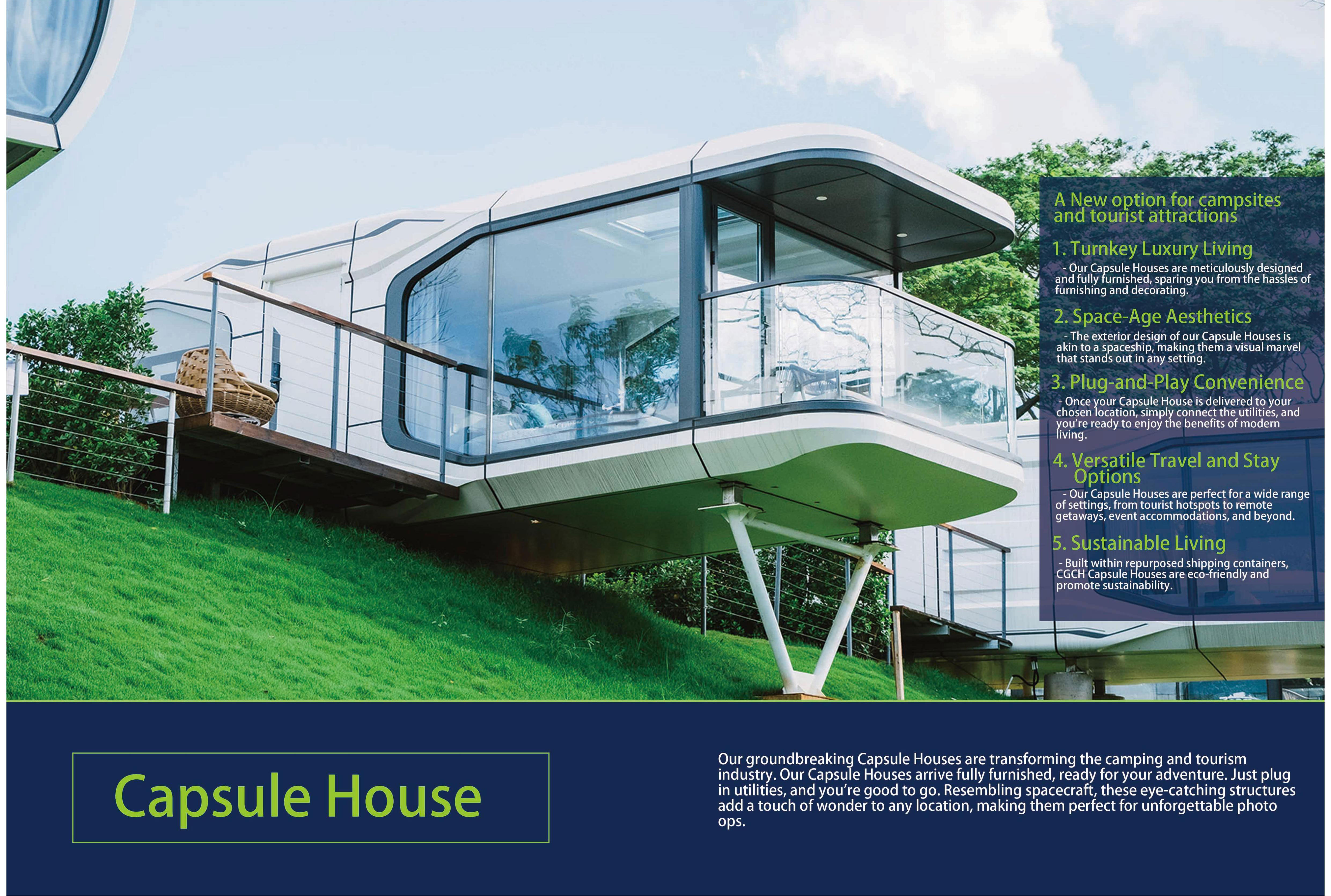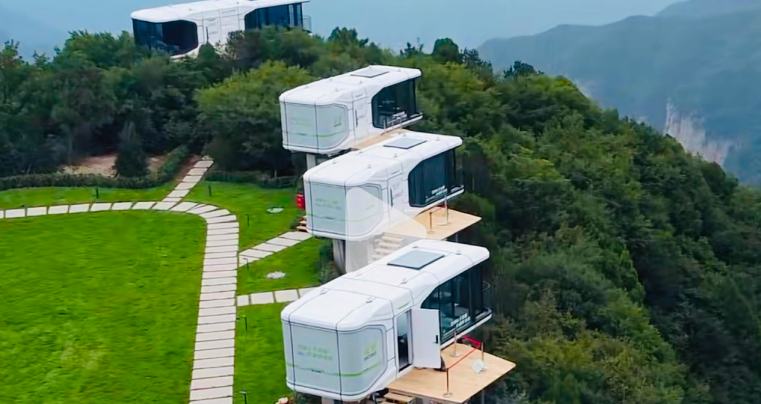Why Modular Residences Are the Future of Lasting Living
Modular homes are significantly acknowledged as a pivotal service for sustainable living, using a blend of performance, cost-effectiveness, and ecological advantages. Their construction in regulated atmospheres substantially minimizes waste and enhances precision, while the possibility for incorporating advanced energy-efficient systems places them as a forward-thinking alternative in housing. The adaptability of modular layouts permits for the integration of lasting technologies and products tailored to private requirements. As we browse the difficulties of urbanization and ecological sustainability, one have to consider just how these homes can redefine our technique to living areas.
Ecological Advantages of Modular Residences
The ecological benefits of modular homes represent a significant step toward lasting living. These homes are created in controlled factory settings, which substantially reduces waste generated during the structure procedure. By maximizing products and minimizing excess, modular building adds to a more efficient use of resources compared to traditional structure approaches.
In addition, modular homes are usually developed with energy effectiveness in mind. Numerous integrate advanced insulation techniques, energy-efficient windows, and lasting materials, adding to reduced energy usage. This can result in minimized greenhouse gas emissions over the life-span of the home, improving its general ecological account.
The capacity to transport and put together modular components on-site additionally reduces the carbon impact connected with building logistics. In addition, many modular homes are constructed to be versatile and easily upgradeable, allowing house owners to execute lasting modern technologies, such as solar panels and energy-efficient heater, in time.
Inevitably, the environmental benefits of modular homes not just promote lasting living yet also motivate an even more responsible method to real estate development, lining up with worldwide initiatives to combat climate adjustment and maintain natural sources for future generations.
Cost-Effectiveness and Affordability
Building a home often stands for among the largest financial investments individuals make in their life time, and modular homes supply a compelling option for those seeking cost-effectiveness and price. One of the primary benefits of modular homes is their reduced building and construction expenses contrasted to conventional site-built homes. The structured manufacturing process permits considerable financial savings on labor and materials, which equates to reduce costs for customers.
In addition, modular homes commonly have much shorter construction timelines. This not only reduces expenditures related to funding and insurance policy yet additionally alleviates the dangers connected with rising cost of living and changing market conditions. Numerous customers find that modular homes can be customized to fit their budget plans without sacrificing top quality or layout.
In addition, power performance is typically developed right into the layout of modular homes, causing decreased energy expenses in time. Numerous producers prioritize lasting products and techniques, better boosting the lasting financial viability of these homes. On the whole, the mix of initial price financial savings, quick construction, and recurring power performance makes modular homes an attractive alternative for those wanting to buy lasting living without breaking the bank.
Efficiency in Building
Modular homes not only use economic benefits but additionally stand out in construction efficiency. The modular building procedure entails the simultaneous construction of modules in a factory setup while site prep work occurs concurrently. This identical technique substantially reduces the overall timeline from conception to completion, typically cutting building time by approximately half contrasted to conventional methods.
Additionally, factory-controlled settings enhance high quality guarantee. By using precision manufacturing methods, modular homes are constructed to exact specifications, minimizing waste and mistakes. This uniformity not only results in a better product but likewise contributes to lasting techniques by reducing material waste during building.
Additionally, making use of modern-day technology and automation in the production process allows for quicker assembly and decreased labor expenses. As soon as the components are moved to the site, they can be efficiently set up, better expediting the timeline. This structured procedure is not just valuable for contractors however also minimizes disturbances to the surrounding environment during construction.
Customization and Design Flexibility
An outstanding range of personalization choices differentiates modular homes, enabling homeowners to tailor their living spaces to satisfy certain requirements and preferences. This design flexibility is a trademark of modular building, allowing clients to select everything from floor plans and room layouts to fixtures and coatings. Unlike standard homes, modular styles help with a collaborative approach where builders find out here now and engineers function carefully with homeowners, guaranteeing that each aspect straightens with visual desires and private way of livings.
Furthermore, modular homes can be easily reconfigured or expanded, suiting altering household dynamics or developing personal preferences. This adaptability not just enhances the home's capability however likewise adds to long-term sustainability, as home owners can customize their spaces instead than seek new housing services.

Future Patterns in Lasting Housing
Emerging patterns in sustainable real estate are reshaping the landscape of property construction, highlighting green methods and cutting-edge modern technologies. One considerable trend is the integration of clever home innovation, which enhances power effectiveness through automated systems that maximize and monitor energy consumption. This not only reduces utility expenses however likewise adds to a reduced carbon impact.
In addition, making use of sustainable products is becoming increasingly usual. Building contractors are going with reused, locally sourced, or rapidly eco-friendly materials, which decrease ecological effect and assistance local economies. Furthermore, modular homes are obtaining popularity for their decreased waste throughout construction and their flexibility to click for more numerous terrains and environments.
An additional pattern is the incorporation of eco-friendly roofs and living walls, which boost air quality and provide natural insulation. These functions likewise advertise biodiversity in city locations.
Conclusion
In conclusion, modular homes arise as a crucial option for lasting living, offering considerable environmental advantages through minimized waste and power performance. As patterns in lasting housing evolve, modular homes are poised to play a crucial duty in promoting eco-friendly living techniques for future generations.
Building a home commonly represents one of the biggest financial investments people make in their lifetime, and modular homes supply an engaging service for those seeking cost-effectiveness and affordability. One of the main benefits of modular homes is their reduced construction prices compared to standard site-built homes. Generally, the combination of first expense savings, rapid building, and recurring power efficiency makes modular homes an appealing alternative for those looking to invest in lasting living without damaging the financial institution.
Eventually, the personalization and style adaptability used by modular homes ensure that they are not just frameworks, yet individualized shelters that show the one-of-a-kind identifications of their passengers while advertising sustainable living practices.

Comments on “How Capsule Houses Offer an Affordable and Efficient Housing Solution”